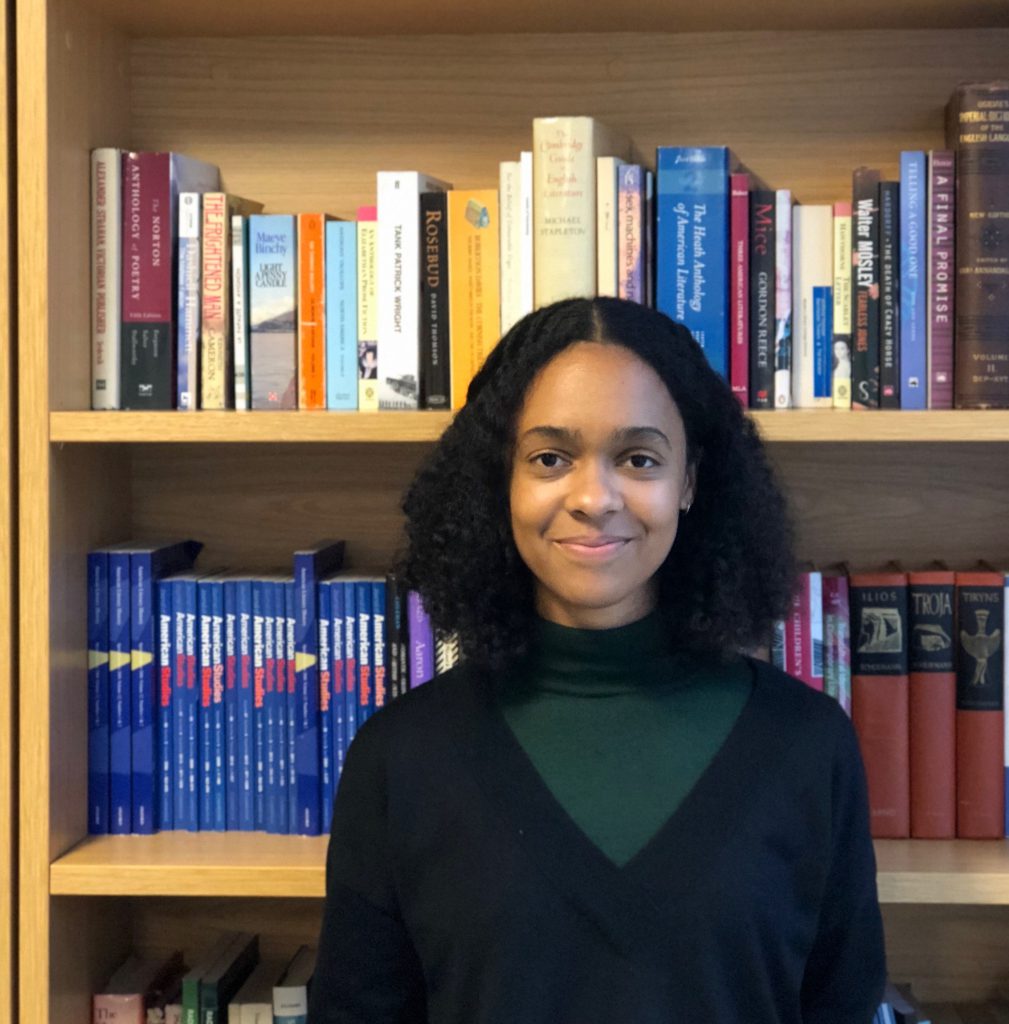By Harriet Thompson and Christine Okoth in conversation

Christine received her PhD from King’s in November 2018 and is now a Research Fellow in the English Department at the University of Warwick. Christine’s supervisors at King’s College London were Jane Elliott and John Howard. Her PhD was examined by Nicole King (Goldsmiths) and Celeste-Marie Bernier (Edinburgh). As part of the Leverhulme funded project ‘World Literature and Commodity Frontiers: The Ecology of the ‘long’ 20th Century’ run by Mike Niblett (Warwick) and Chris Campbell (Exeter), Christine is writing a monograph tentatively entitled The Novel of Extraction.
Harriet is a PhD student in the English department and co-editor of the King’s English blog.
Harriet Thompson (HT): I wanted to start by congratulating you on completing your PhD last year. The catalyst for our conversation was the news that you’ve recently been awarded one of only six Elsevier Outstanding PhD Thesis Prizes granted at King’s in January 2019, and the only award granted to a thesis in the Faculty of the Arts and Humanities. I know your thesis explores the integration of African immigrant literature into the economic, political, and cultural fabric of the United States. I wonder if you could talk about how your research relates to ongoing debates about the value of migration and particularly the issue of which migrant persons are deemed valuable or disposable?
Christine Okoth (OK): Thank you so much – I’m still quite shocked that I even have a PhD let alone that my examiners thought it was good enough for a prize! In what is probably a familiar tale, I had no idea what my thesis would eventually become when I started at King’s in 2014. It all started with Lisa Lowe’s Immigrant Acts, a book that I encountered during my masters and that remains my favourite academic monograph. In it, Lowe develops a theory of Asian American political and cultural production as a kind of antithesis to the American national project. The history of Asian exclusion, which, by the way, isn’t taught nearly widely enough in UK universities, serves as the backdrop to Lowe’s argument. The idea that immigration legislation relates closely to the position that cultural production by immigrants holds within the U.S. nation-state stayed with me. I wanted to ask more questions about how the sudden popularity of African migrant literature – Adichie’s Americanah and Teju Cole’s Open City for example – related to shifts in U.S. immigration legislation. These novels weren’t exactly narratives of exclusion but are instead emergent genres of integration that take place against the backdrop of a changing political discourse around immigration.

